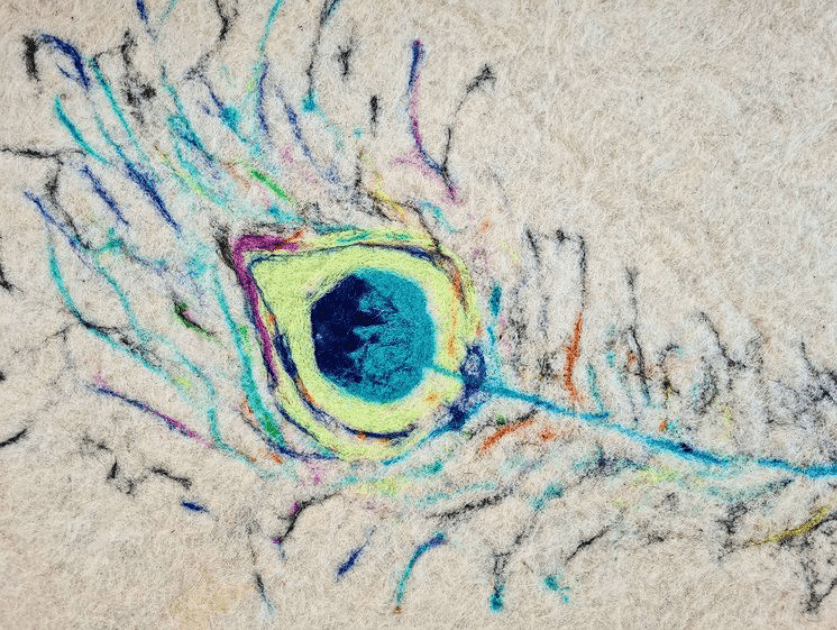Milanović: Citizens and People Respect and Love Croatian Army
ZAGREB, 20 Dec 2021 - The President of the Republic and Armed Forces Commander in Chief, Zoran Milanović, said on Monday that the Dr. Franjo Tuđman Croatian Military Academy was created amid the war and nation-building, underscoring that the Croatian Armed Forces served to defend the country and were respected and loved by the people.
"I've arrived from an institution that has marked its 30th anniversary this morning -- the Croatian National Bank (HNB). That 30th anniversary isn't actually real because that institution had existed before. This one, yours and ours, hadn't existed, it was created amid the war and state-building process. And it's completely new and in that sense completely ours," said Milanović at an event marking the 30th anniversary of the Dr. Franjo Tuđman Croatian Military Academy and a graduation ceremony.
He added that after 30 years of the Croatian state, the Dr. Franjo Tuđman Croatian Military Academy and the HNB were the only two institutions that had done their job well and with honor and had never disgraced themselves.
"One of these two institutions is financial and it enjoys a good reputation but doesn't inspire love. The other one, your and our Croatian army is special, it is only ours, it serves to defend our country and did so when it was hardest, and it's respected and loved by the citizens and the people. These two institutions, these two pillars, do what is good in the Croatian state," he said.
He announced that he would visit the Republic of Kosovo in two days, where he would also visit Croatian soldiers who are there as part of NATO's KFOR operation. He stressed they were there "because that is our decision".
"No solidarity, no force made us go there, that is our decision and our assessment that it is good for us and the region. We will increasingly have to be guided by our interests and then solidarity," Milanović stressed.
You have something to be proud of, you've chosen a difficult job
He told the military academy graduates that they had something to be proud of and that they had chosen a difficult job of being a Croatian soldier in a country that is a NATO and EU member.
In addition to President Milanović, the event was attended by his adviser on war veterans, Marijan Mareković, the Commander of the Dr. Franjo Tuđman Croatian Military Academy, Lt. Gen. Mate Pađen, and the Deputy Chief of the General Staff of the Croatian Armed Forces, Lt. Gen. Siniša Jurković.
For more on politics, follow TCN's dedicated page.
Thirty Years of Croatian National Bank Observed
ZAGREB, 20 Dec 2021 - The Croatian National Bank (HNB) is the central monetary institution that had a crucial stabilizing role in the past and now has an important role on Croatia's path to the euro area, a ceremony marking 30 years of the HNB was told on Monday.
On 25 June 1991, parliament adopted a constitutional decision on Croatia's sovereignty and independence and the following 8 October, a decision severing all ties with the former Yugoslavia. That day, the government adopted a decree on the HNB which went into force on 23 December.
Prime Minister Andrej Plenković said the HNB was the central institution of Croatia's monetary system and that its 30th anniversary was occurring in challenging circumstances due to the pandemic as well as at a time of transformation as Croatia was integrating with the euro area.
He said the HNB had an important stabilizing role in the first decade of Croatia's independence as well as significance which manifested when the global financial crisis broke out in 2008.
Then, with monetary policy measures, the HNB cushioned the effects of the crisis on the economy, preserving exchange rate stability, releasing additional liquidity, and contributing to the state's stability, he added.
Croatia completing euro area preparations as the fourth decade of independence begins
Speaking of Croatia's goal to join the euro area on 1 January 2023, Plenković said the common currency was a logical instrument not just to achieve deeper integration, but primarily to fully exploit the potential of the single market.
With a population of over 340 million, the euro area is the second largest world economy, accounting for 15% of the world's GDP, while the euro is the second most important world currency, accounting for 38% of global transactions, the prime minister said.
Surveys show that 79% of the euro area population support the common currency, while only 15% are against it, although support has gone up during the pandemic, he added.
At the start of the fourth decade of its independence, Croatia is completing preparations for adopting the euro and achieving closer integration with the EU, he said.
"Adopting the euro will be a key step for Croatia towards boosting the economy's competitiveness and bigger economic sovereignty," he said, adding that it is certainly in Croatia's interest to share the same currency with its main trade partners.
Plenković said the decision on Croatia's accession was expected in mid-2022 and that when it joined the euro area six months later, the currency risk and exchange costs would disappear for businesses and citizens, it would have a positive effect on exports and tourist arrivals from the euro area as well as stimulate foreign investment.
He cited the example of Lithuania, which introduced the euro in 2015, saying that since then gross pay has gone up 59% and prices 10%.
In Croatia, between 2015 and 2020, gross pay went up 21% and prices 2.4%.
President wistful about Croatia losing its currency
President Zoran Milanović said that besides the Croatian Army, the HNB was the institution that had done a good job in these 30 years, while all the rest, including courts, the State Attorney's Office, and all governments, had ups and, unfortunately, more downs.
Regarding euro area accession, the president said he was looking at Croatia's losing its currency with a dose of wistfulness.
He said the decision to adopt the euro was a political one and that it would be good for the economy because of its structure, including the high share of services and tourism.
However, he added, Hungary, the Czech Republic, and Poland have not introduced the euro and, with good arguments and acceptance from their citizens, show tendencies and a clear direction to do things their way.
He said the Czech Republic was borrowing cheaper and more favorably than some euro area member states, wondering how to explain that. Therefore, he added, one should not have absolute views and there should be no dogmas.
The president said Lithuania was the only example of pay rises in the euro area. On the other hand, he added, there are countries where salaries are stagnating or even falling. The Italian economy has been stagnating for 20 years and has never adjusted to the euro, he said.
Speaking of cryptocurrencies, Milanović said everything should be done to control that segment and ban it if necessary. "It's terribly dangerous."
He said abolishing paper money was educationally bad as children must see money to understand its value.
Governor proud of central bank
HNB governor Boris Vujčić said he was proud that they had built such an institution, underlining the real autonomy which the political authorities had given it. Thanks to this autonomy, "we have managed to build an institution which is recognized the world over," he said, adding that the HNB promotes excellence and competence.
Asked by the press if he, too, was wistful about the changes that joining the euro area would bring, Vujčić said he was convinced that it would benefit all citizens, which would prove important in the next crisis.
He said Croatia's accession would be a new challenge for the HNB, which would keep all its functions as the central bank, except decisions on the monetary policy.
As for Milanović's mention of the Czech Republic, Vujčić said it would profit by introducing the euro, but considerably less than Croatia because it is much less euroized.
Asked about cryptocurrencies, he said everyone should be aware of the risks and advised extreme caution "because it's an absolutely speculative type of investment. It's not money that replaces the money issued by central banks."
Finance Minister Zdravko Marić told the press he did not agree with the president's claim that Lithuania was perhaps the only positive example of euro adoption, saying that Slovenia, the Baltic countries, Cyprus and Malta had benefited from it.
Deputy Parliament Speaker Željko Reiner recalled that the kuna was introduced as the national currency on 30 May 1994, replacing the dinar, but said Croatia had aspired to European monetary integration since 1991.
He noted that euro coins will have Croatian motifs, including the marten (kuna) on the €1 coin.
For more on politics, follow TCN's dedicated page.
Milanović: Plenković Made Mistake for Not Blocking EU Council Conclusions
ZAGREB, 20 Dec 2021 - President Zoran Milanović believes that Prime Minister Andrej Plenković didn't make a mistake by going to Sarajevo but he should have used a mechanism at Croatia's disposal in Brussels to block the adoption of the conclusions by the Council of the EU concerning Bosnia and Herzegovina.
"Plenković didn't make a mistake by going to Sarajevo but he did make a mistake when he did not, consciously or intentionally, use the mechanism that Croatia has at its disposal in Brussels and that is to block the adoption of the conclusions that are in contradiction to Croatia's starting positions," Milanović said in a statement after attending a ceremony marking the 30th anniversary of the establishment of the Dr. Franjo Tuđman Military Academy.
Plenković visited Bosnia and Herzegovina last Monday. Several days later Milanović criticized the government's support to the Council's conclusions on enlargement because the final document does not mention the constituent states and the legitimate political representation of Croats in BiH.
Today he said that the time has come to replace Croatia's Ambassador to Brussels, Irena Andrassy.
Milanović on Sunday canceled his visit to Travnik and Nova Bila, Bosnia and Herzegovina for security reasons, but today he would not discuss the security threats in question. He said he would visit Bosnia and Herzegovina some other time and that "no moral rabble-rousers would stop him."
"I cannot be friends with everyone, especially not with the unitarist clique in Sarajevo who are posing as patriots, and I will oppose them," Milanović said.
He said that the Serb member of the Bosnia and Herzegovina Presidency, Milorad Dodik, is provoking those people and that he can understand his behavior. "I understand such behavior, but I do not encourage it. Realistically, Dodik can do nothing to them. He doesn't have two long barrels, which is good in this situation. He is provoking them, but he is dealing with people who are professional liars who would rob an entire community, Croats in BiH. Well, that just won't go," said Milanović.
He criticized the Croatian government for not doing enough to protect the Croats in Bosnia and Herzegovina. The government is ignoring its job and what it has at its disposal. Those are diplomatic measures to protect state interests, in this case, the Croats in BiH", said Milanović.
"Bosnia and Herzegovina cannot exist without Croats. They are the smallest constituent group, but they tip the scales for the country's survival. If after all that a handful of unitary rabble-rousers, moral usurers don't like me, that's fine," Milanović said.
He said that nearly 200,000 Croats remained in the Lašva valley. "If you talk to them, they are more for BiH than the Croats in Herzegovina - naturally. We are talking about that political community. They are loyal to Bosnia and Herzegovina," said Milanović.
For more on politics, follow TCN's dedicated page.
Milanović Says Will Come to Bosnia Again
ZAGREB, 20 Dec 2021 - Croatian President Zoran Milanović said on Monday, a day after canceling a visit to Bosnia and Herzegovina due to security risks, that he would come again.
Milanović yesterday canceled a visit to Travnik and Nova Bila and today would not elaborate on the security risks.
He said he would come to BiH again and that "no morality rabble-rousers will stop me."
"They can get lost", he added. "I can't be friends with everybody. If one should be in a conflict with someone, and that's the unitarist clique in Sarajevo who say they are patriots, I will be in conflict with them."
Milanović said he felt his statements helped the Croat people in BiH, otherwise, they would be exposed to disorganization. He reproached the Croatian government for not doing enough for their protection.
"Bosnia and Herzegovina doesn't exist without Croats. They are the smallest, but they tip the scales for the state's survival. If, after all that, a handful of unitarist rabble-rousers, morality usurers, don't like me, then great," the president said.
For more on politics, follow TCN's dedicated page.
Constitutional Court to Discuss COVID Certificates on Tuesday
ZAGREB, 20 Dec 2021 - Croatia's Constitutional Court will on Tuesday consider the constitutionality of the digital COVID passes for access to hospitals and the mandatory vaccination against coronavirus in healthcare and social welfare institutions.
The topic of COVID certificates in the whole public sector will not be on the agenda, as the government has not yet notified the Court about its position on the matter, the Constitutional Court said on Monday, adding that it had sent a reminder to the government concerning that topic.
For more on politics, follow TCN's dedicated page.
Average Farmland Rent €106 Per Hectare
ZAGREB, 20 Dec 2021 - The average rental rate of arable land in Croatia in 2020 amounted to HRK 793 (€106) per hectare, which is HRK 26 (€3.5) more than in 2019, the Croatian Bureau of Statistics (DZS) reported on Monday.
The statistics indicate that in 2020 the average grassland rent was HRK 525 per hectare or HRK 13 more year-on-year whereas pastures increased by HRK 12 to HRK 343 per hectare.
In Pannonian Croatia, the average rent of arable land in 2020 was HRK 811 per hectare, of meadows HRK 487 per hectare, and of pastures HRK 307 per hectare.
The average rent of arable land along the Adriatic coast was HRK 651 per hectare, of meadows HRK 558 per hectare, and of pastures HRK 468 per hectare.
In northern Croatia, the average farmland rent rate was HRK 853 per hectare, the average rent for meadows was HRK 676 per hectare and for pastures HRK 405 per hectare.
In the Zagreb City area, the average arable land rent rate was HRK 912 per hectare and for meadows HRK 1,080 per hectare.
The DZS notes that its data is based on Tax Administration data on farmland leases.
(€1 = HRK 7.513279)
For more, check out our business section.
Croatia's Interior Ministry Procures Earthquake Simulator
ZAGREB, 20 Dec 2021 - The Croatian ministry of the interior has commissioned an earthquake simulator that can simulate the ground motion of earthquakes up to intensity 9 on the Mercalli scale, the Večernji List daily reported on Monday.
The purpose of that container, worth HRK 3.3 million (€440,000) without Value Added Tax, is to enable participants in exercises that take place in such containers to experience various sorts of tremors.
The interior of the container is furnished with movable objects which can be found in an ordinary living room, and sound effects typical for earthquakes will also be simulated during exercises.
The objects in the container are non-breakable so that participants in earthquake simulation exercises cannot be injured.
The procurement of the earthquake simulation room is part of the ministry's project aimed at efforts to reduce the risks of natural disasters, the daily newspaper reported.
For more on politics, follow TCN's dedicated page.
Meet the Makers: Likamee Wool Rugs, Eco-Friendly and Imperfectly Perfect
In the age of mass-production and overconsumption, artisanal crafts seem to be making a comeback as more and more people crave authenticity over standardised manufacturing. We’re starting a new series to highlight the talented Croatian artisans creating extraordinary things, looking to learn more about their crafts. First up in Meet the Makers, an interview with the woman who’s turning discarded sheep fleece into stunning, eco-friendly wool rugs
Scrolling through my news feed one day, an image caught my eye. A star-shaped white rug, covered in streaks of bright pink and orange, that looked incredibly soft and entirely unique. That’s how I first learned of Likamee wool, a small family business manufacturing felted wool rugs.
Likamee wool is run by two exceptional women: Nada Jandrić, the artisan creating the rugs, and her daughter Ivana who manages the Likamee socials and is also familiar with the craft herself. I reached out to them to learn more about their work and the stars aligned just right for us to meet in Zagreb for a chat.
Blurring the line between home decor and art, Likamee rugs are beautiful, one of a kind pieces, but there’s a lot to appreciate about this unique product beyond the aesthetic.
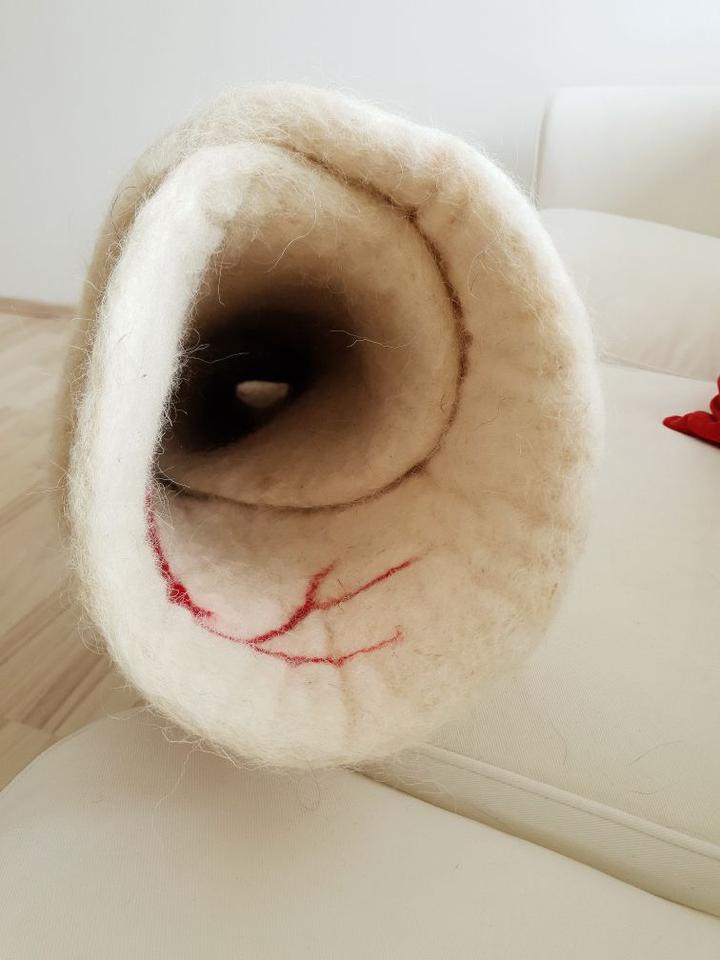
All the rugs are handmade, eco-friendly and animal-friendly, and I was curious to find out what led Nada to start practising such a specific craft. I thought this creative endeavour may have organically evolved from a love of arts and crafts in general, but she was in fact inspired by a documentary she saw about the environmental impact of wool as a pollutant.
You read that right - raw natural fiber can very well be a pollutant. Annual sheep shearing leaves behind massive quantities of fleece which essentially turns into waste overnight. Some people burn the leftover wool, some bury it, some just send it to landfill. On her part, Nada wanted to work out a way to recycle the fleece and give it a new life.
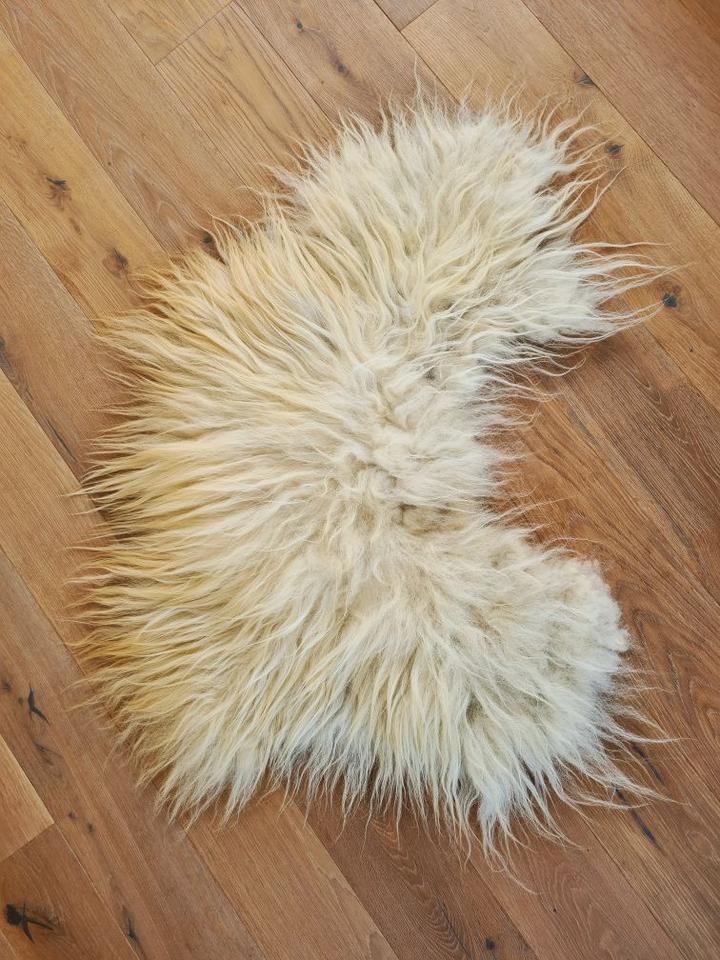
‘I had some unprocessed wool at home and the documentary got me thinking. If I could get more wool, what would I do with it? I don’t knit, I don’t spin yarn… I wanted to do something no one else was doing. So I did some googling, learned about felting, and I really liked the concept. I gave it a try; I started small, making pom-poms. Then I got myself a few felting needles and little by little, my projects expanded in size. Small at first, the rugs grew larger and larger until I made one with a 2-metre diameter.’
That particular rug is the largest she made to date and weighs an impressive 8 kilos, but on average Likamee rugs weigh around 2-3 kilos each (6,5lb). Coincidentally, that’s exactly how much wool is typically shorn from a single sheep, resulting in a neat principle of one sheep - one rug, give or take. I was delighted to learn that Likamee wool rugs have an easily traced origin, and a sweet story at that.
‘I source my wool from a woman who lives in Lika and tends to a flock of one hundred sheep. She loves those sheep so much. Each one has a name, and they respond to their names when called! It’s really something else. As an animal lover, I want that flock to be preserved for as long as possible.’
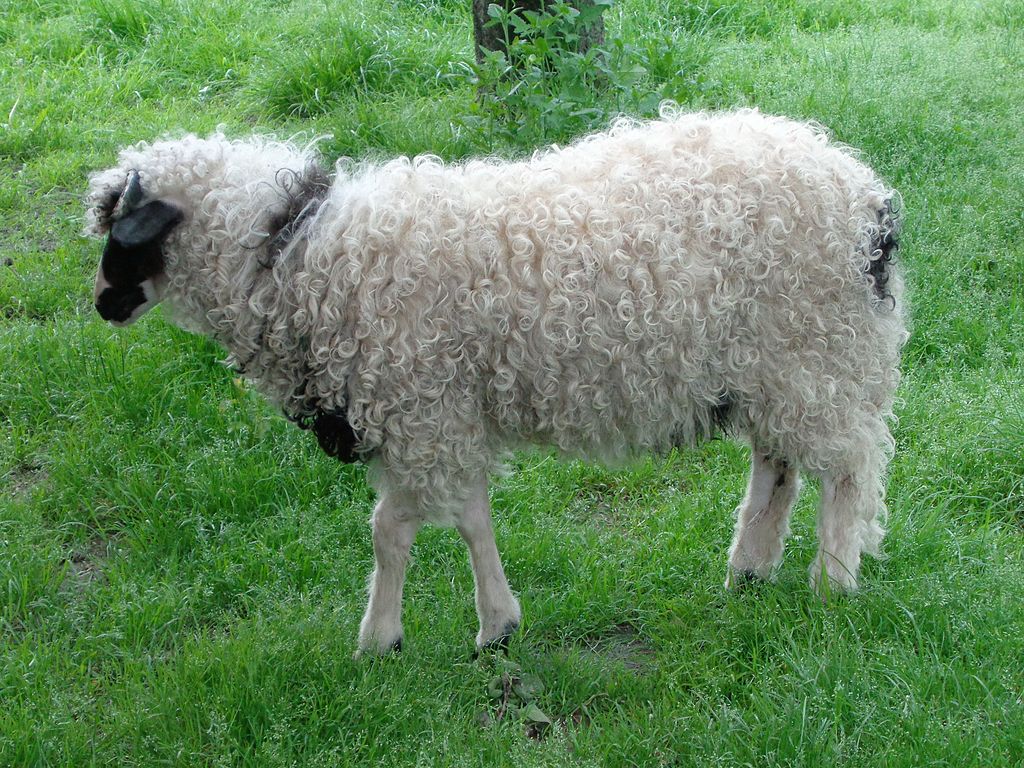
Lika Pramenka sheep / Wiki Commons
Animal-friendly manufacturing is a crucial part of the Likamee philosophy. Some of the rugs are made to imitate the look of sheepskin, but only in appearance: batches of shorn fleece are bonded by felting, resulting in beautiful and durable pieces created without any harm coming to animals.
‘My sheep are all safe and sound, they just get a haircut every once in a while’, said Nada with a laugh.
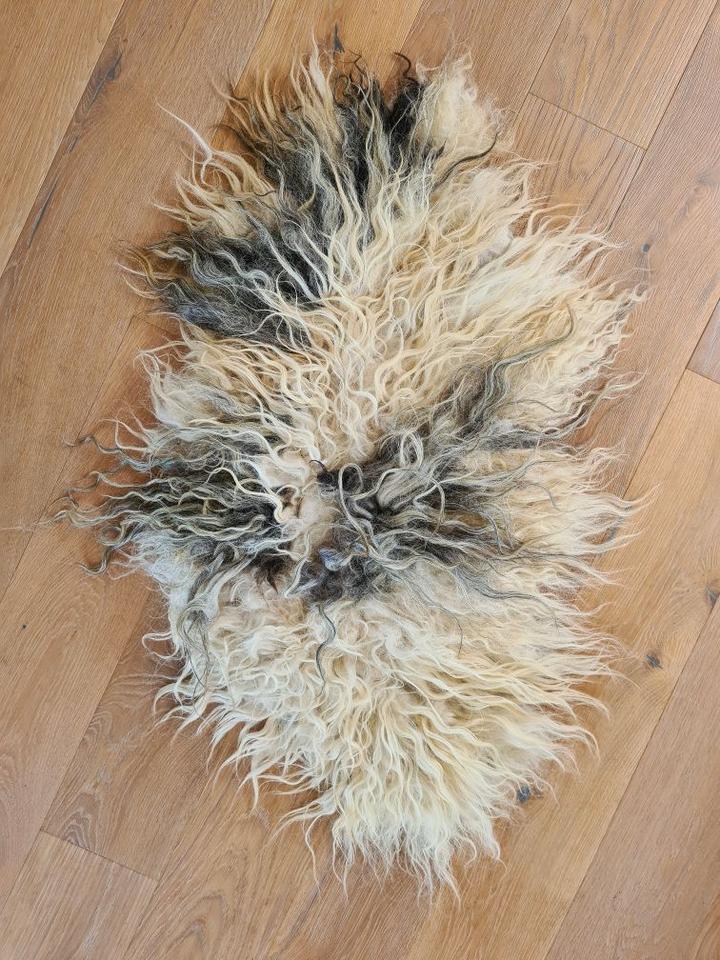
A sheep fleece Likamee rug with felted mat backing
These days, sourcing wool is the least of her concerns. Friends and family were very much on board ever since they first learned about the rugs, and everyone was happy to help by bringing more fleece for future projects. Nada soon had so much wool on her hands, storing it became a challenge. Once you have the raw material ready, what’s next?
As you might imagine, making a woollen rug by hand is a lengthy, demanding process. Nada and Ivana took me through all the steps involved in hand processing of wool, and learning how much time and effort is invested into each piece only made me appreciate the craft all the more.
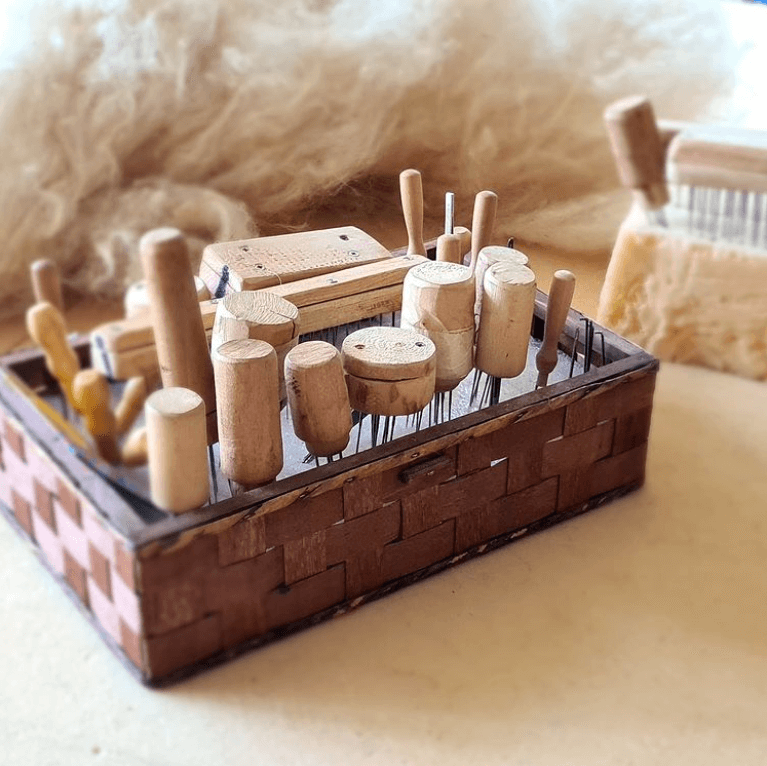
An assortment of felting needles, all handmade for Likamee manufacturing purposes
‘Say I was making a small rug and putting a few hours into it every day, it’d take me about a week to finish it. Since I’m basically stabbing wool [with the felting needle] by hand the whole time, I can work for four hours at a time, tops', says Nada. Check out the Instagram video showing the first stage of the dry felting process.
The creation of a rug is just the final step, though, and it’s the preparatory work that actually requires the most effort. There are stages to working with unprocessed fleece: it needs to be washed first, and that alone can take days.
Raw fleece typically has an unpleasant smell and is covered in mud, dirt and grease, so it needs to go through the wash a few times before it’s considered clean enough for further processing. Soak, rinse, repeat. Nada and Ivana do it all by hand.
‘You could technically use a washer, but all washing machines are too rough on wool even on the most gentle cycles. What occurs is that the fleece sort of felts itself and then you need to rip it apart again. That’d be incredibly hard: once wool is felted, it can very well last forever. So we wash it by hand instead.’
Once it’s air dried, the clean fleece goes through several rounds of combing. It’s split into smaller chunks with the help of a carding machine, is then combed by hand, and finally goes through a mechanical tool for fine carding (see the carder in action in this video). Is that the big contraption I saw on their Instagram? We wish it were big, they replied with a laugh.
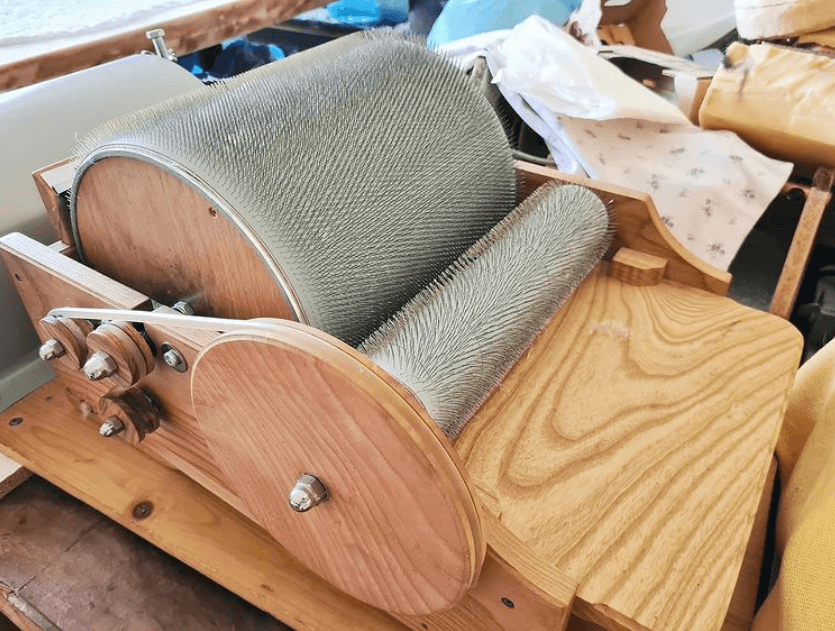
The biggest carding tools intended for hobbyists are 30cm wide - it’s not much when you have to prep enough wool to make a rug, but anything bigger than that is only made for industrial manufacturing. They could really use a larger carder to process more wool at once, but had no luck searching for one.
‘Since my dad can make anything, he offered to build us a custom carding tool if we got him a metal sheet fitted with combing pins. Turns out, you can’t get one anywhere. We couldn’t source individual parts to build a bigger carder on our own, and so we struggle with the small one that we have. That’s why it takes so long; it’s a lengthy process in part due to the equipment’, explained Ivana.
Rough batches of wool are fine-combed until they transform into soft, airy clouds:

At that point, it’s finally time to felt. Several sheets of wool are stacked on a foam mat to make a rug, the number of sheets depending on the type of wool. Some are softer, some a bit rougher.
‘Our wool from Lika is more coarse, it takes more effort to work with. I also use wool from Pag island, that one’s softer. Interestingly, both are the Pramenka sheep breed, just originating from different areas.’
All Likamee rugs are unique, and Nada never makes the same design twice because it’s virtually impossible to repeat the same pattern. While some rugs retain the soft hues of natural sheep fleece, I’ve noticed a few eye-catching designs with accents of colour.
‘I started to dye the wool just to see how it would turn out. Since I’m working with eco wool, it only made sense to use eco-friendly dyes as well. I used coloured pencils at first and liked how it came out, then I started using natural purple dye. I’m planning to give avocado a try too… but mostly I just use natural wool. The experiments are more to ensure I have enough dyed wool at hand in case someone commissions a rug in a specific colour or pattern.’
Commissions are coming in indeed, and what started as a creative experiment and evolved into a hobby is now taking the shape of a business. For the last five years, it’s been all about learning. Now they’re working on branding and marketing, with Ivana managing the Likamee website and social media pages.
While they would both love for the project to become commercially viable and turn into a fully fledged family business, they primarily aim to build a strong design brand with a well-defined image: eco-friendly, high quality products.
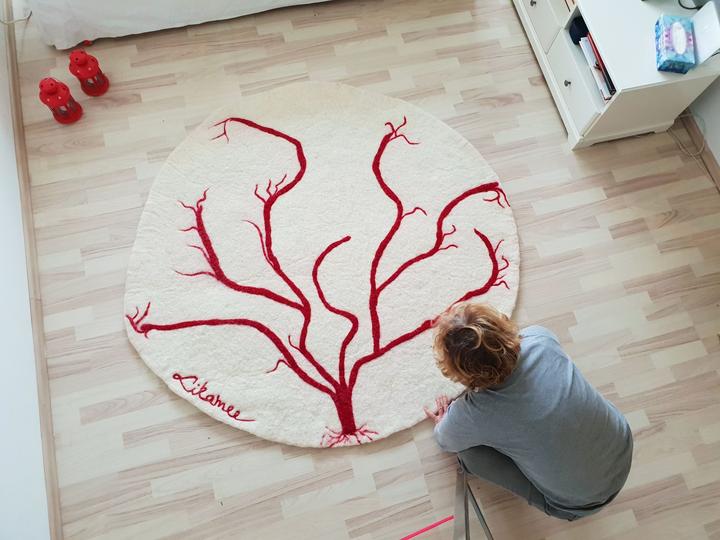
In the meantime, they’re enjoying the creative process. Ivana said, ‘People love working with their hands, but aren’t fully aware of this until they actually start making something. It’s meditative, you get completely lost in it. It’s a different kind of focus than filling Excel sheets or preparing work presentations. We really enjoy it. It can be exhausting, but it’s so fulfilling.'
'The work is challenging, but so interesting', agreed Nada. 'There are times you get annoyed when something isn't turning out as you planned, but once you see your finished product, you know it’s all been worth it.'
We wish the best of luck to Likamee wool - head over to their website to browse the rug selection, and follow them on Instagram.
Unless otherwise noted, all images are courtesy of Likamee wool.
Croatian Cyclists' Union Launches Campaign Promoting Bike Commuting
ZAGREB, 20 Dec 2021 - The Croatian Cyclists' Union on Monday launched a campaign promoting the use of bicycles for transport in Zagreb during the Advent and Christmas holidays.
The purpose of the campaign called "Dva Kotača od Zaraze Jača ("Bikes Offer Better Protection against Infection" in an unofficial translation) is to encourage more and more residents to ride a bike instead of using cars when commuting to work or visiting Advent events in Zagreb.
The union said today that the campaign would be conducted until 7 January.
Representatives of the cyclists' union cited multiple benefits of using bicycles such as keeping a distance, lessening the pressure on the public transportation services, contributing to efforts to reduce air pollution, etc.
The campaign has financially been supported by the city authorities.
Bike commuters are called to share photos on social media networks.
For more, check out our lifestyle section.
Traditional School "Window Concert" of Christmas Carols Held in Vinkovci
ZAGREB, 20 Dec 2021 - The Vinkovci Josip Runjanin Music School on Sunday held its traditional Christmas Carols concert with about 150 current and former students and teachers of the school participating in the event.
The concert with singers standing by the school windows is traditionally organized on the fourth Advent Sunday, and only last year the COVID-19 pandemic prevent the organization of the concert
This year's traditional Christmas carols concert also paid tribute to the composer of the Croatian anthem, Josip Runjanin, in memory of the 200th anniversary of his birth in this eastern Croatian city. The music school in Vinkovci is also named after him.
"I don't think anyone in Croatia has something like this. We all got together and unified around this project which has grown into a traditional event with former and current students and teachers and Vinkovci citizens to give this city a present it deserves," the school principal Dinka Peti said.
The concert "Let there be Music..." was staged with the choir standing along with the high school's windows while the orchestra played on the plateau in front of the school with a large audience attending, including Mayor Ivan Bosančić.
"This is one very beautiful event which makes us all proud and which ushers in the Christmas holidays. As we can see a large number of our citizens turned up and I am pleased that Vinkovci has been recognized for this concert as something that will enrich us all and make us happy for Christmas," Mayor Bosančić said.
For more, check out our lifestyle section.


